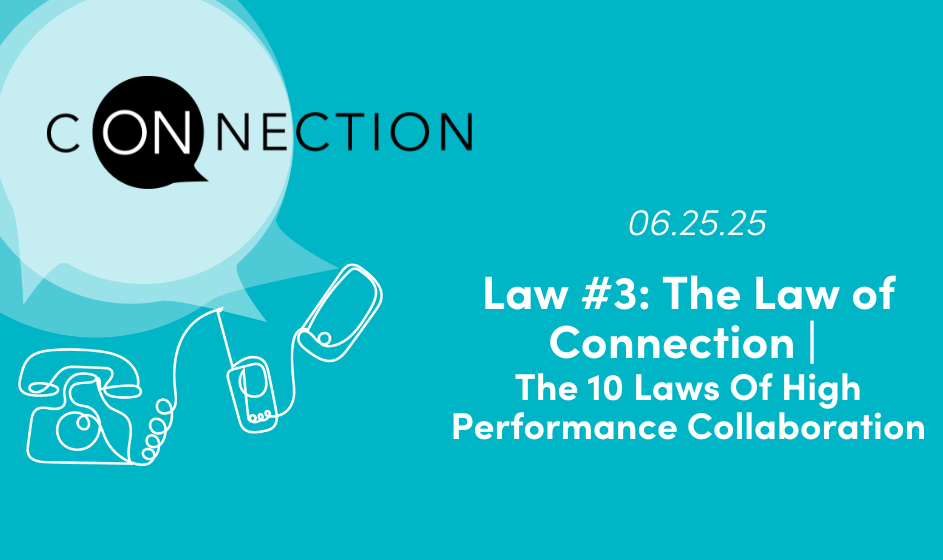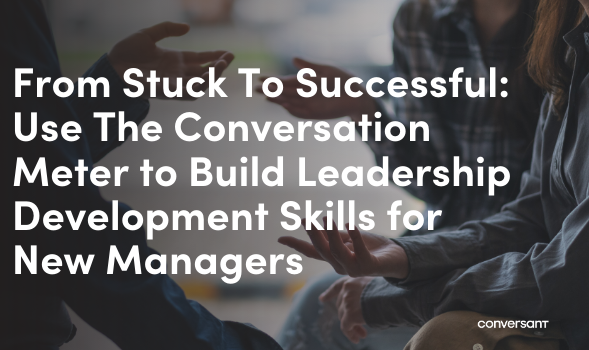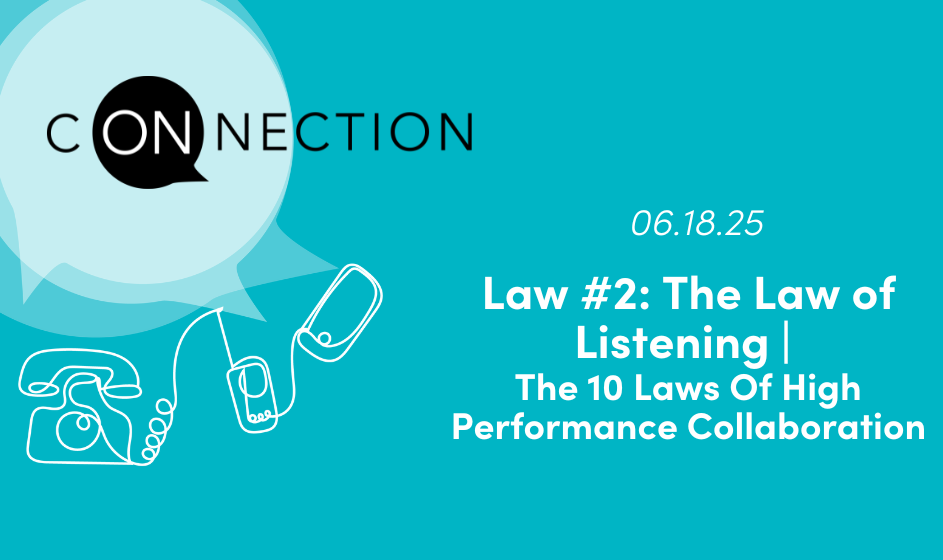In today’s episode, Colin and Mickey discuss culture change, a once “too soft” topic for business development that has become one of the greatest concerns for today’s senior executives. With the average life expectancy of a company quickly decreasing, leaders that encourage the re-imagination of cultural identity are far better prepared to outlast their competitors. Colin and Mickey consider what handling culture change as a Leader, Boss, or Bastard looks like, and which one stands a chance at navigating the quickly changing landscape of business.
Highlights:
- Most senior leaders today are concerned about the fit between their culture and their strategy
- In the last 15 years, 52% of the Fortune 500 companies have disappeared
- The average life expectancy of a Fortune 500 company has dropped from 75 years in 1955 to 15 years today
- Think about organizations as ecosystems, not structures
- Culture change requires unlearning old habits that don’t serve our purpose for today
- The future of competitive edge is going to be speed of learning, speed of reimagining, and speed of re-identifying
- The Bastard cultural change leader is all extrospective and not at all introspective, acting more often out of fear than malicious intent
The Evolution of Organizational Culture Change
1:31 Mickey: If I look at 10 – 15 years ago, when we would bring up the issue of organizational culture, the majority of senior leaders in organizations would dismiss it as soft and they only wanted to talk about the hard business topics of P&L, balance sheet and cash flow. And yet today, in this last year or so, almost every senior executive we talk to has a concern about the fit between their culture and their strategy. What happened that has had this become permissible, even necessary to discuss today when 10 years ago it was dismissed as soft and inconsequential?
2:08 Colin: I think first of all, Mickey, many people saw culture as an enabler, so they would think strategy first, and then say, “well, what does our culture need to be like?” And so, therefore, culture didn’t get changed very much.
2:24 Colin: The cultural change stuff that I saw 10, 15, 20 years ago, was quite mechanical it was simplistic, and therefore, it didn’t work.
2:46 Colin: We’re now changing at such a rate, the acceleration, we’re about to be 7 billion people on the planet. We’ve never done that before. And so we are now in a very new way of being.
3:08 Colin: We are actually in a world that’s much more disturbed and disordered, if that’s the frame we have, than it was 10 years ago. And strategy alone just doesn’t cut it.
3:30 Mickey: One of the things that I read is that in the last 15 years, 52% of the Fortune 500 companies have disappeared. In 1955, the average life expectancy of a Fortune 500 company was 75 years. This year the average life expectancy of a Fortune 500 company is 15 years. What sense do you make of that inside of this interest in how culture is consequential for organizations?
4:08 Colin: Not only have you got that 52% figure, you’ve also got the reverse of that, which is that we are seeing companies begin in a garage, and within 2 or 3 years are worth a billion dollars. So, we’re also seeing upgrowth incredibly fast, and that is remarkable.
We’ve got to stop thinking about organizations as structures, and start thinking of them as ecosystems
4:35 Colin: If you think of an organization as a structure, you can kind of work out A + B = C and you can work out how to make that system work. Once you think about it as an ecosystem, there’s issues of tension and balance and synergies that really are way more difficult to think about and to manage if you want to be a leader.
4:58 Mickey: What are the most essential things a leader might care about if you’re thinking of this dynamic, ever evolving network of relationships that functions like and ecosystem, versus this hierarchal structure that stands still for a while so you can learn exactly how it works?
5:20 Colin: A leader actually has people understand what we all care about, and has people able to reimagine themselves, reimagine their organization, reinvent, reform, and that is an issue of identity, that is an issue of seeing myself in a different way.
The Importance of “Unlearning”
5:46 Colin: So the challenge of that for a leader is not only have you got to help people to learn what’s going outside as well as inside, what’s going on around us, you’ve also got to help people unlearn.
6:02 Colin: Learning is imperative. Unlearning, which is very different to leaving behind, is incredibly difficult. And therefore as a leader, to help people unlearn you have to deeply and profoundly care about them, you’ve got to know who they are, and you’ve got to give them help with what I would call the transition from who you are now to who you need to be, and that requires insight, it requires courage, and it requires wisdom.
Courage and wisdom: The two factors that make great cultures
6:40 Colin: To get courage and wisdom, you can only get it from experiences, you cannot learn those two things. And so what leaders do is they give them experiences that have them begin to discover their courage, discover their wisdom.
7:00 Colin: You have to have diversity. Diversity brings a diversity of wisdoms, and courages. And so you then get this rich melange of extraordinary cleverness that you can take into the future as it keeps being reinvented.
8:40 Mickey: It’s diversity is the source of intelligence and reimagining and strength and wisdom.
7:30 Mickey: It’s very unusual, in my experience, to have people consider that an act of leadership is continually evolving what do we all care about. So whatever “we” there is that explains the existence of a system, of a business, of a nonprofit, whatever it is, how does the evolution of our care call for reimagining ourselves, which is a different way to think than “fixing ourselves”? We have to reimagine ourselves and our enterprise in light of the evolving care.
Essentiality vs. False Simplicity
9:00 Colin: What we’ve tried to do in the past is we’ve tried to simplify. When we are feeling discomforted from the complexity in the world, we race for solution, we race for security, we race for certainty. Leaders need at this point in our time to actually reframe that chaos, reframe that disruption, and start to think about it as multiple sources of information, as multipolarity.
9:38 Colin: So now we’re making sense of the complexity rather than simplifying the complexity. And again that requires different perspectives, different wisdoms, different courages. A leader in that space has to be expansive.
9:56 Mickey: Now when people take a really complex environment and attempt to falsely simplify the solutions to its challenges, it actually is a recipe for deccelerating the evolution of the culture, or getting the culture to actually disintegrate, fall apart. And yet we do it because we’re so desperate to make sense out of everything.
10:20 Mickey: I think of it as a false simplicity, something that misses the real nature of what’s going on in the system and how all the different pieces are affecting each other in an interrelated way.
10:37 Mickey: There are a lot of people that say one of the hallmarks of elegance is simplicity, but that’s when you’re highlighting the absolute essential nature of something, not falsely eradicating the true challenges in a complex system.
11:04 Colin: I am all for essentiality. When you are in the turbulence of disorder, there’s got to be something that you can see that has you feel safe. And what we do know is that when we have complex disruptive systems and somebody comes with what you’ve beautifully described as kind of false simplicity, you get answers like “build a wall”. And what occurs of course is, if you don’t have a leader that cares, if I don’t feel like I’m in an organizational village that matters to me, I would jump for that solution because I am so uncomfortable I am desperate.
12:28 Mickey: That reimagining of ourselves, I think happens more naturally when the essential thing we all care about becomes magnetically clear, that people recognize its legitimacy and are attracted to it at the level of self.
A Lesson in Essentiality
12:44 Mickey: An example of a client who I think has done that with courage and wisdom, here in the United States, one of the big insurance companies is Humana, starting with Mike McCalister and his tenure before he retired and brilliantly brought forward by Bruce Brussard, who’s the CEO there today. They actually renamed the essential issue for the existence of the contribution of their company in the world.
13:18 Mickey: They had to organize Humana to help people achieve lifelong well being. They couldn’t just be a company that worked out paying claims for diseases when it seemed justified. That they needed to shift the whole way that they saw the role of their company in the world for them to have both commercial viability and social viability. And that is, “our job is to focus all of who we are on helping people achieve lifelong well being.” And I think that fits with a kind of essential wakeup call that can have an organization come together and begin to reimagine itself.
14:02 Colin: As human beings we’ve all gone through identity transitions. So we know we can do it. Somehow we want to make sure that we can still do those things inside organizations.
14:29 Colin: How do you unlearn your identity, how do you unlearn things? And you think about that Humana example, which is beautiful, what did the folks have to unlearn?
From continuous improvement to true innovation
14:48 Colin: The challenge of continuous improvement, as good as it can be, it doesn’t typically require unlearning around identity, and you in fact become self-absorbed in simply polishing what you’ve already been doing for a number of years, which in my view explains the 52% attrition rate you talked about in Fortune 500. They’ve lost the capacity to reimagine. And of course, if I’m not being well led, I can only define success in terms of my current identity and therefore I will do everything I can to hold onto the past and polish it to look like it’s new when it’s not.
16:20 Colin: That is a big challenge for many organizations who think that their intellectual property is their competitive edge. I don’t think that’s true any more. I think their competitive edge is going to be speed of learning, speed of reimagining, speed of re-identifying, and that’s why we’re seeing startups beginning in garages and becoming a billion dollars in 3 years. Because they are constantly reimagining, they’re constantly destroying their own intellectual property to find something new.
17:06 Mickey:We’ve always had respect for that saying, “It’s easier to ride a horse the direction in which it’s walking.” The world is going towards the rapid and unhindered sharing of information, and so if we don’t evolve consistent with the direction it’s going, that seems to lack the wisdom you were talking about earlier.
The Leader, the Boss, & the Bastard of Culture Change
17:26 Mickey: When you look at it from a Leader perspective, you said that the job is to Keep people evolving the question of what do we all care about, and bring to that the courage and wisdom it takes to reimagine ourselves and that includes being able to unlearn those deeply embedded habits that have become so thoughtlessly identified with that it takes work to even see them, much less unlearn them.
17:58 Mickey: Our chance for being smart about those challenges going way up in the presence of diverse points of view equally respected for all of their different contributions.
That allows us to be in this evolving ecosystem where we keep awakening to where the reimagining is called for now, rather than the Boss thing, which I think is more of the traditional approach where you get a project management office and a bunch of instructions that tells people, “you used to act like this, now you’re supposed to act like this, by the way, somebody changed the metrics and rewards and if y’all don’t act that way then we’ll find someone who can.” It’s a false simplification of the issue. It can be well meaning, but it’s mechanical. It does not fit with the nature of being human.
18:53 Mickey: The Bastard cultural change leader is all extrospective and not at all introspective. So the issues are all outside of her or himself. They completely get it, but the rest of us need to change, the markets need to change, the circumstances in the company need to change.
19:30 Mickey: What do they need to reimagine as a human being? What do they need to unlearn? That somehow never seems to be a topic.
19:54 Colin: The Leader is somebody who actually understands that this is a tough time and we’re in it together, and we’re taking time to reimagine ourselves. We’re not going to race, we’re going to do this very well, and then we’re going to accelerate beyond belief. So there’s always the possibility of surprising results.
Fear & the Bastard
20:18 Colin: I think there are many Bastards in our organizations who look like really nice people. They are so frightened that they are holding on to the past and polishing it…and it actually makes people feel even more insecure, less valid, and lose all capacity to reimagine their identity and their organization.
20:48 Mickey: So you’re saying that Bastard may be more a function of fear than evil.
20:54 Colin: I think Bastard is typically all about fear. In fact, a Bastard in my experience has quite often got the shakiest of all identities. I don’t think there are many malicious people on the planet.



